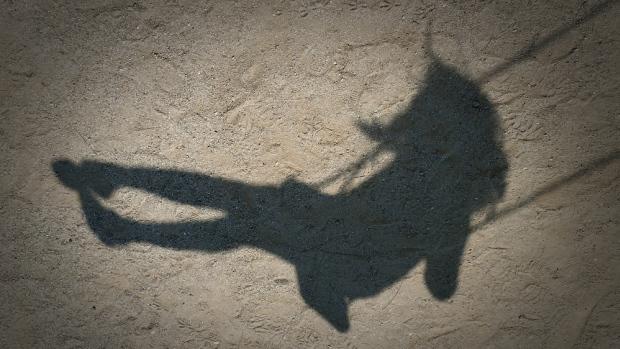|
Virtuous Pedophiles group gives support therapy can't
By Amber Hildebrandt
Last year, Ethan Edwards, a man in his mid-50s, confided his deepest secret to a close friend: that he was a pedophile. "He's happy to keep my secret," Edwards wrote in an online chat with CBC News, too fearful of vigilantes to give out his phone number. But he says his friend now feels infected by his secret. Edwards, a pseudonym, only realized he was attracted to young girls a few years ago. He says he's never acted on it. Now, he's devoting his energy to helping others ensure they, too, never victimize a child. Edwards, who says he is from Pennsylvania and is the father of three daughters, co-founded a online support group called Virtuous Pedophiles. The 330-member group, which is designed to help admitted pedophiles talk through their conditions and curb their desires, is completely anonymous. He's never even spoken on the phone with his co-founder, Nick Devin (also a pseudonym). "Our prime goal in creating it was probably more the public relations aspect regarding the public. To help people see that we're not all molesters," said Edwards. "But along with that was also a desire to help the pedophiles who qualified." The website is a rare spot where pedophiles can acknowledge their problem and seek help to keep their impulses under control, without fear of being exposed to a world where hysteria about child molesters can cloud any understanding of and research into the problem of pedophilia. Of course, not everyone agrees with its purpose. The Virginia-based National Centre for Missing and Exploited Children, for example, fears that sites like Virtuous Pedophiles operate merely under the guise of helping pedophiles remain celibate, but instead enable them to trade tips and tricks on how to groom children for sexual purposes. "While on the cover you think there may be legitimate reasons and purposes, not everybody who joins those groups has an altruistic motive," says John Shehan, executive director of the centre's exploited child division. But James Cantor, an internationally-recognized expert on pedophilia at Toronto's Centre for Addiction and Mental Health, calls it a "wonderful organization" that helps a largely invisible group support each other to keep from committing crimes. Interest vs. actionPedophiles often make the news in connection with massive child-porn busts, such as last week's arrest in Britain of 660 suspected pedophiles who viewed indecent images. And Pope Francis recently waded into the controversy of pedophilia in the Catholic Church when he estimated that two per cent of the church's 8,000 or so clergy were pedophiles. He went on to describe child abusers as a "leprosy" within the church. There's no conclusive figure on what percentage of society suffers from pedophilia, and Cantor, who is also editor-in-chief of Sexual Abuse: A Journal of Research and Treatment, says not enough is understood about condition itself. One point he does make, though, is that "pedophilia is different from child molestation. "Pedophilia refers very specifically to the sexual interest," says Cantor. "That's very different from people who actually act on the sexual impulse and sexually approach or touch a child." Edwards also says that distinction is important. Although a pedophile, he calls sex abuse a "serious crime." "A lot of pedophiles never sexually abuse a child and never would. Like no chance at all," he says. "But it's very hard to have to keep a big secret." The trouble with lawsIn a world where there is a huge stigma attached to pedophilia, those with the condition are often intensely afraid to reveal their troubling thoughts to family and friends. At the same time, laws can also deter them from even speaking to their therapists. Across Canada, provincial rules require that mental-health professionals must report a patient to authorities if they have reasonable grounds to believe that a specific child is at risk of being sexually molested or exploited. 'At this point it is pretty undeniable that this is a brain phenomenon'- Psychologist James Cantor The exact wording varies by jurisdiction, but often mental health professionals err on the side of caution, due to fear of lawsuits, reporting even cases where the risk of someone acting on their impulses is not great, or where a patient's comments don't involve a specific child. "The side effect of that is now people don't come in [to therapy] in the first place," says Cantor. "We have every reason to believe that those laws make things worse rather than better," he says. "We should be making it easier for people to come in to therapy. We need to rewind things back to where doctor-patient privilege was doctor-patient privilege. Period." Cantor says that in his experience with pedophiles, they tend to commit crimes when they are at their most desperate. "Unfortunately, all society does is make them feel all the more desperate by removing every possible support." The root cause?Last year, Montrealer David Goldberg, a former local newspaper editor and minor baseball coach, wrote a candid column for The Atlantic magazine about his own arrest in 2012 as part of an international child-porn bust. "I had never asked to be cursed with this sexual attraction, and I had never hurt a child," Goldberg wrote in the piece titled "I, Pedophile." After his arrest, and 90 days in jail, he put his journalistic skills to work researching the root causes of pedophilia. He concluded it wasn't anything from his past, but was rather a sexual orientation. In fact, scientists don't really understand what causes pedophilia. In Cantor's work, he scans the brains of pedophiles. Among his findings is that they tend to have IQs that are 10 points lower than the average person, plus lower memory scores. A larger portion of pedophiles are left-handed or ambidextrous than the general public, a finding similar to those with schizophrenia or autism. "At this point it is pretty undeniable that this is a brain phenomenon, although we have not yet been able to identify what's been affecting the brain development," says Cantor. Current research doesn't provide enough evidence to tie pedophilia purely to biological conditions, Cantor says. But it does eliminate the common argument that upbringing and environment are solely to blame. That leads researchers like him — and pedophiles who have not molested children — to call for a focus on treatment rather than incarceration. As Goldberg wrote: "Until we as a society learn that help for those who view child pornography is a far better alternative to incarceration, we are doomed to see the continued proliferation of this problem." Many pedophiles, who often first notice their sexual interest in young children when they are in their teens or 20s, feel intensely afraid of the world discovering their secret. Edwards says many of his group's members not only fear therapists, but they feel like they're being viewed only as a potential offender and not a person when visiting a therapist. That leads many of them to anonymous groups like Edwards' Virtuous Pedophiles. In Germany, a project titled Prevention Project Dunkelfeld (which translates as dark fields) taps into that need for anonymity. The free program gives confidential treatment — no names required — by phone or Skype to those trying to control their pedophilia. The website says that no one will be condemned for their sexual preference, "but everyone is responsible for their sexual behaviour." "With the help of specialized therapy, men with a sexual preference disorder can learn to act responsibly," the home page says. That kind of anonymous therapy is impossible in Canada where psychologists are required to keep a complete file — name and address included — of everyone they see in therapy. Here in Canada, Cantor laments a system that prevents therapists from helping pedophiles. "It's difficult to imagine such a curse. Who can they tell? From their point of view, they can't tell a therapist, they can't tell their parents, their peers, their boyfriends, girlfriends," said Cantor. "They are as alone as a person can be."
|
.
Any original material on these pages is copyright © BishopAccountability.org 2004. Reproduce freely with attribution.


